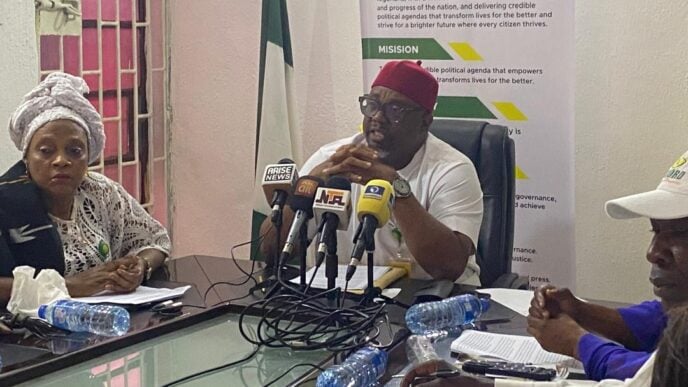Servio Gbadamosi, award-winning poet and founder of Noirledge Publishing, says many publishers in Nigeria struggle to sell 2,000 copies of a book.
Speaking during an interview with Rudolf Okonkwo on 90MinutesAfrica, Gbadamosi bemoaned the state of the country’s publishing industry, stating that the number of active readers with the purchasing power to procure books is “very small”.
“This is a country of over 200 million people in which publishers struggle to sell 2,000 copies of their books,” he said.
“The number of active readers who have the purchasing power to afford the works that these authors and publishers produce is very small.”
Advertisement
Gbadamosi, who won the Association of Nigerian Authors (ANA) prize for poetry, attributed the challenge to Nigeria’s worsening economy which has led to spiralling inflation.
He said the handful of Nigerians who can afford books are dwindling, thereby eroding the fragile ecosystem needed for the publishing industry to thrive.
Gbadamosi also spoke about the Nigeria Liquefied Natural Gas (NLNG) prize for literature which some have criticised.
Advertisement
He said the prize has helped many writers — including two authors from his publishing company. He added that instead of criticising the prize, other companies and groups in Nigeria should create more prizes to support writers.
“With over 200 million people, Nigeria should not be looking to only one or two prizes. We need more of them at different levels,” he said.
The publisher also discussed how some poorly written books are approved for use in Nigerian schools.
He said some of the books are badly edited, badly printed, and written by people who lack good command of English.
Advertisement
“The children reading some of those books are going to have deformed minds because they are badly written, poorly edited, and of low-quality production,” he said.
“You can even tell that some of the writers don’t have a grasp of the language with which they are writing. These are the kind of books that the regulators always find a way to get into the curriculum.”
He said some of the people tasked with choosing books for schools do not care about the intellectual development of the pupils.
“There are stipulated standards for vetting these books, but sometimes the people in charge will skip them and grant approval because of personal benefits,” the poet added.
Advertisement
“At the end, it’s the children that suffer for it, especially those that don’t have parents with the dedication to look at what their children are being taught and try to correct the anomalies in some of the texts.”
Gbadamosi also said many university libraries are filled with outdated books, some as old as 40 years, because schools do not receive money to purchase new ones.
Advertisement









